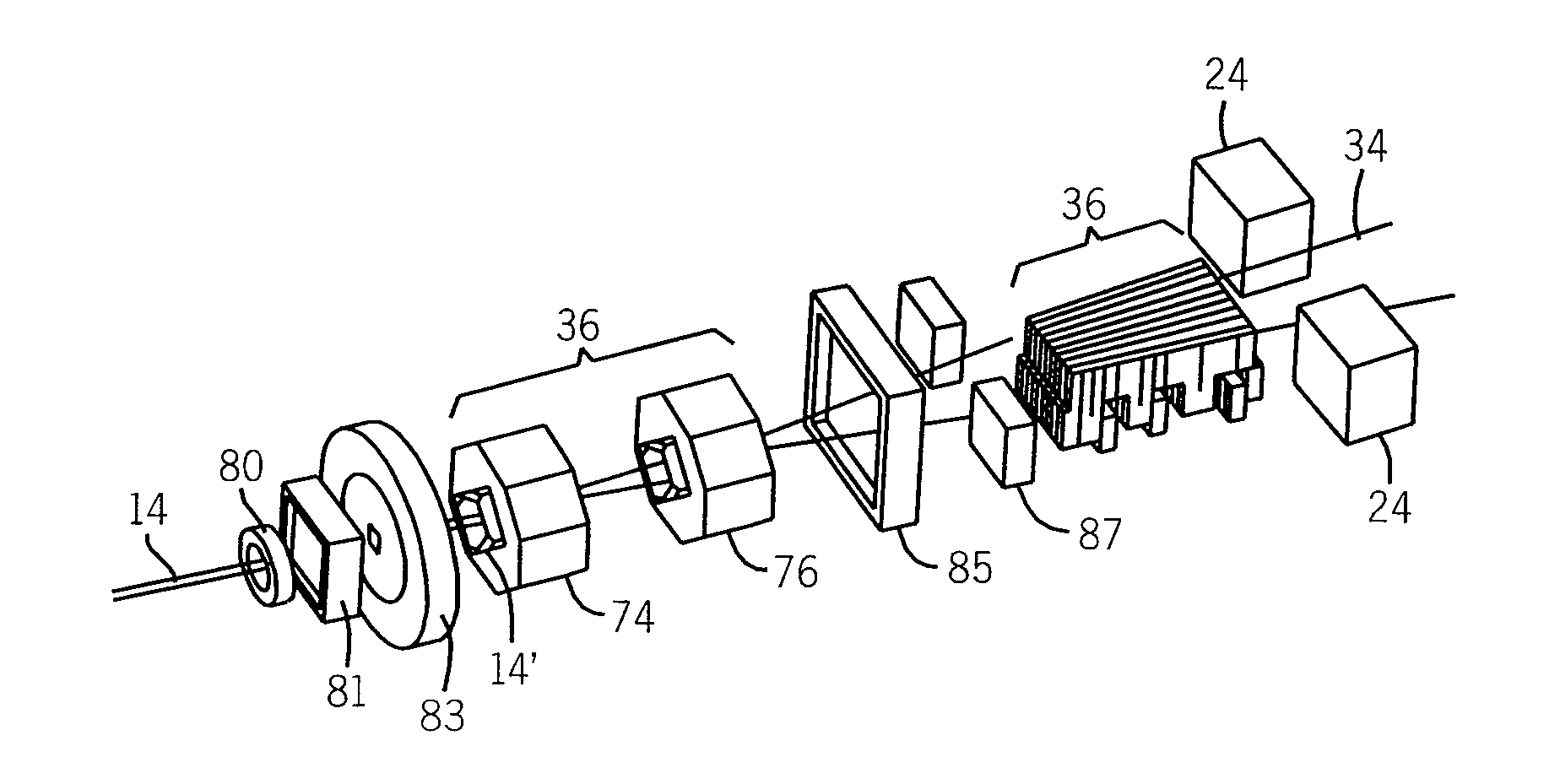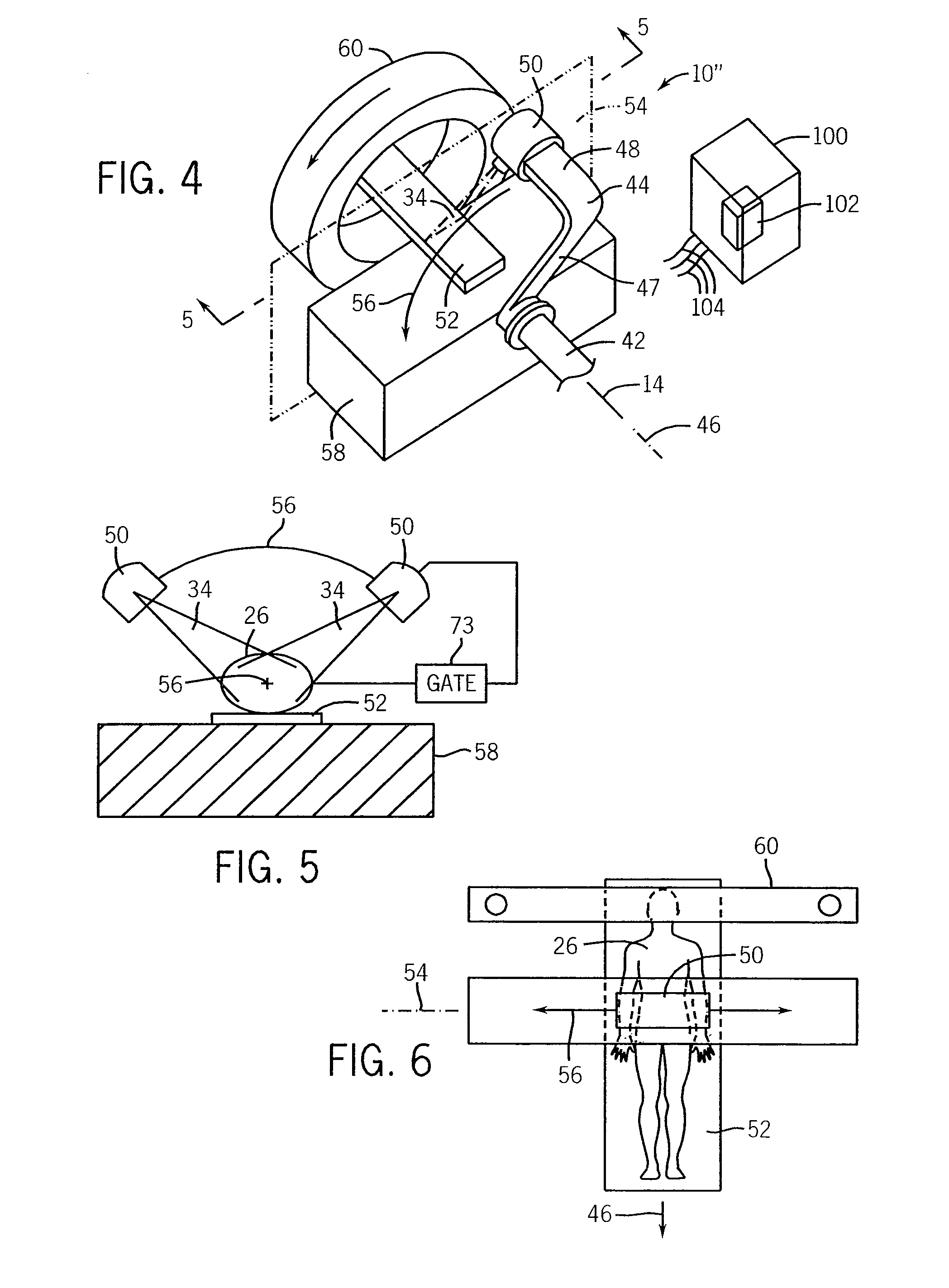Heavy ion radiation therapy system with stair-step modulation
a radiation therapy system and stair-step technology, applied in the field of radiation therapy systems, can solve the problems of difficult to conform the dose to the tumor volume, the approach is much slower than the sobp approach, and the dose deposited by the proton beam is not uniform along the entrance path of the beam, so as to achieve precise control of adjacent beamlets, reduce the intensity of photons, and high speed
- Summary
- Abstract
- Description
- Claims
- Application Information
AI Technical Summary
Benefits of technology
Problems solved by technology
Method used
Image
Examples
Embodiment Construction
[0049]Referring now to FIG. 1, a conventional ion radiation therapy system 10 employing the SOBP approach described above provides an ion source 12 producing a pencil beam 14 of ions traveling along an axis 20.
[0050]The pencil beam 14 may be received by a foil 17 scattering the pencil beam into a cone beam 18 having a circular cross-section 21. The energy of the ions in the cone beam 18 is then received by a rotating wedge propeller placing a material of varying thickness in the cone beam 18 and acting as a range shifter 16 continuously changing the energy and thus range of penetration of the ions into tissue.
[0051]The cone beam 18 then passes through a collimator 24 approximating the outline of the tumor and a compensator 22 tailor-made for the particular tumor being treated after which the cone beam 18 is received by the patient 26 to produce a treatment pattern 28. As noted, this treatment approach simultaneously treats the entire volume of the tumor and is therefore relatively q...
PUM
 Login to View More
Login to View More Abstract
Description
Claims
Application Information
 Login to View More
Login to View More - R&D
- Intellectual Property
- Life Sciences
- Materials
- Tech Scout
- Unparalleled Data Quality
- Higher Quality Content
- 60% Fewer Hallucinations
Browse by: Latest US Patents, China's latest patents, Technical Efficacy Thesaurus, Application Domain, Technology Topic, Popular Technical Reports.
© 2025 PatSnap. All rights reserved.Legal|Privacy policy|Modern Slavery Act Transparency Statement|Sitemap|About US| Contact US: help@patsnap.com



